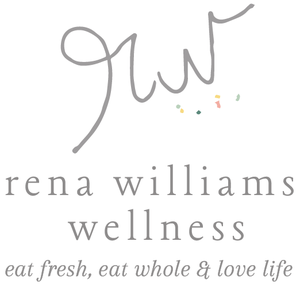Have you ever had a sweet craving to boost low energy and feel better or get out from feeling hangry? You indulge. You feel good for a bit. Then that infamous sugar crash hits.
That dip in mood causing us to crave that sweet treat is from a drop in our blood sugar levels. At any given time, there’s about one teaspoon of sugar (glucose) in our blood stream. Any more or less affects us in a variety of adverse ways including our mood and how we feel.
Our focus is off, our ability to make well-thought-out decisions, our quick thinking - all gone. It’s like literally we’re tapped out.
When our moods are low our body’s looking for tryptophan to help tap into that feel good feeling. (Tryptophan helps produce serotonin, which we know as our happy ‘drug'.) Insulin, which is responsible for keeping our blood sugar at optimal levels, is a shuttle for getting tryptophan to our brain. It helps raise those serotonin levels so we get that mood boost we’re craving. Think of insulin like someone giving you a speed pass.
Soo, we often gravitate towards that sugary treat to spike our blood sugar levels quickly calling on insulin to come to our aid. Tout de suite.
But I don’t like sweet. I prefer something salty like potato chips you say.
Guess what? It has the same effect on your blood sugar levels. Because potato chips are so refined (even the ‘healthy’ ones) ;) they convert into sugar about as fast as that sugary treat.
When You Feel Hangry
Here’s what you do instead. Reach for a carb that has a more stabilizing affect (an apple, celery, carrot sticks, sliced peppers, etc) on your blood sugar levels. AND, to avoid that crash add in a little healthy fat and protein to help you feel balanced.
Instead of grabbing for the first snack you see (which is most often something sugary, because our brain is like insulin right away) plan ahead. Before you get to hangry, think of what balanced snack will serve you best.
You’ll still get the boost of energy. But by choosing a balanced snack you avoid the crash. So you end up feeling better. Longer.
Now I’d love to hear from you. Share with me one of your healthy snack ideas in the comments below.
Was this blog post helpful? Join my private Facebook community for more inspiration and tips on how to feel better.



